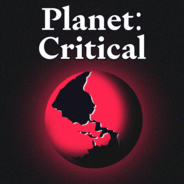What happens when economics takes precedence over thermodynamics?Eventually, the system collapses—because being incompatible with thermodynamics is impossible. That’s the stark message of this week’s guest, Louis Arnoux, a scientist, engineer and managing director of Fourth Transition, who has been working on this problem for decades. Louis and his team’s research point to our energy systems collapsing by 2030 because we’re having to spend more energy than ever before to extract fuel. Soon, the energy cost of extraction will equal the energy benefit. Such an equilibrium is, in his words, a dead state. In the episode, Louis gives a phenomenal overview of the three thermodynamic traps human civilisation is caught in, including how decarbonising to renewables is exacerbating the thermodynamic problem. He explains how our current energy systems work antithetically to the sun and the planet, including the waste problem, before highlighting the role of economics in the creation of an impossible system. He then explains what a possible energy system could look like with the technology we have available, and how we can engineer that system to mimic the efficiency and productivity of life on the planet. Planet: Critical is 100% independent and community-powered. If you value it, and have the means, become a paid subscriber today! Get full access to Planet: Critical at www.planetcritical.com/subscribe

PolitikWirtschaftTalk
Planet: Critical Folgen
Planet: Critical is the podcast for a world in crisis. We face severe climate, energy, economic and political breakdown. Journalist Rachel Donald interviews those confronting the crisis, revealing what's really going on—and what needs to be done. www.planetcritical.com
Folgen von Planet: Critical
231 Folgen
-
Folge vom 19.09.2024The Energy Collapse | Louis Arnoux
-
Folge vom 10.09.2024E-Topia | Deep DhillonCan we engineer our way out of dystopia? A.I. technologist Deep Dhillon and I had a heated exchange about technology after meeting by chance in Granada after a flamenco performance. The conversation was fascinating, and I invited him onto the show to discuss what's really going on in Silicon Valley around A.I., what developments are being made and why, and how this technology is going to impact us all. As a cofounder of Xyonix and host of the podcast, Your A.I. Injection, Deep has decades of experience working on A.I. models. He explains his vision for a brighter future facilitated by technology, but equally explains the negative impacts of technology not just on society but on the industry itself which is racing to keep up with its own developments. This is a wide-ranging conversations about systems, tech, the economy and collective responsibility for engineering a better future for us all.Planet: Critical is 100% independent and community-powered. If you value it, and have the means, become a paid subscriber today! Get full access to Planet: Critical at www.planetcritical.com/subscribe
-
Folge vom 05.09.2024The Rights of Nature | Mongabay NewscastThis week, P:C features Mongabay.Nations across the globe are trialing “rights of nature” laws and “legal personhood” for various ecosystems and a range of reasons, from Indigenous reconciliation to biodiversity protection. While these two concepts are closely related, they have some key differences.Viktoria Kahui discusses what distinguishes them and how they’ve been used for conservation, while stressing there’s still little evidence that legal personhood protects biodiversity. Kahui is an environmental and ecological economist at the University of Otago in Aotearoa New Zealand and joins the Mongabay Newscast to interrogate these legal frameworks.In this conversation with co-host Rachel Donald, Kahui outlines instances where the laws have been applied and why, despite some flaws, she thinks they are worth considering and iterating upon to combat environmental degradation, despite a global debate and many critiques, based on their intent and design. Chief among these is their imposition of an anthropocentric (and primarily Western) legal viewpoint upon something as complex as nature, which transcends the confines of human liability and, therefore, cannot be subjected to it without knock-on effects that potentially harm the people these laws are intended to empower.Kahui weighs in on this debate and where she sees such laws being applied in a promising fashion, such as in Ecuador, where courts have examined nature in the context of established constitutional law, leading to outcomes that have benefited both people and nature.“Very slowly, as lawyers and judges are becoming more familiar with the concept, they’re able to interpret it when there is a legal case being brought, and they’re [better able to argue] the side of nature,” she says. “It’s certainly much, much more positive than what we’ve seen in the past.”Subscribe to or follow the Mongabay Newscast wherever you listen to podcasts, from Apple to Spotify, and you can also listen to all episodes on the Mongabay website.Planet: Critical is back to regular programming next week. Stay tuned. Get full access to Planet: Critical at www.planetcritical.com/subscribe
-
Folge vom 29.08.2024Sick People or Sick Society? | Steffi BednarekHow has the psychology industry perpetuated the problem? Steffi Bednarek is a climate psychotherapist working both with clients on their anxiety and depression related to climate grief, and the overarching systems within the psychology profession which stigmatises mental health by failing to grasp that poor mental health can be a rational reaction to a broken world. Steffi joins me to discuss how the dysfunction of our neoliberal economic system permeates our experience of being in the world, questioning whether health is an attainable goal in a sick society. She suggests the mental health crisis is yet another opportunity to radically transform our systems to promote a health that includes people and planet. We discuss the construct of the self, the metacrisis as a birth process, the role of the body in understanding information, and how to build psychological resilience. Planet: Critical is 100% independent and community-powered. If you value it, and have the means, become a paid subscriber today! Get full access to Planet: Critical at www.planetcritical.com/subscribe
